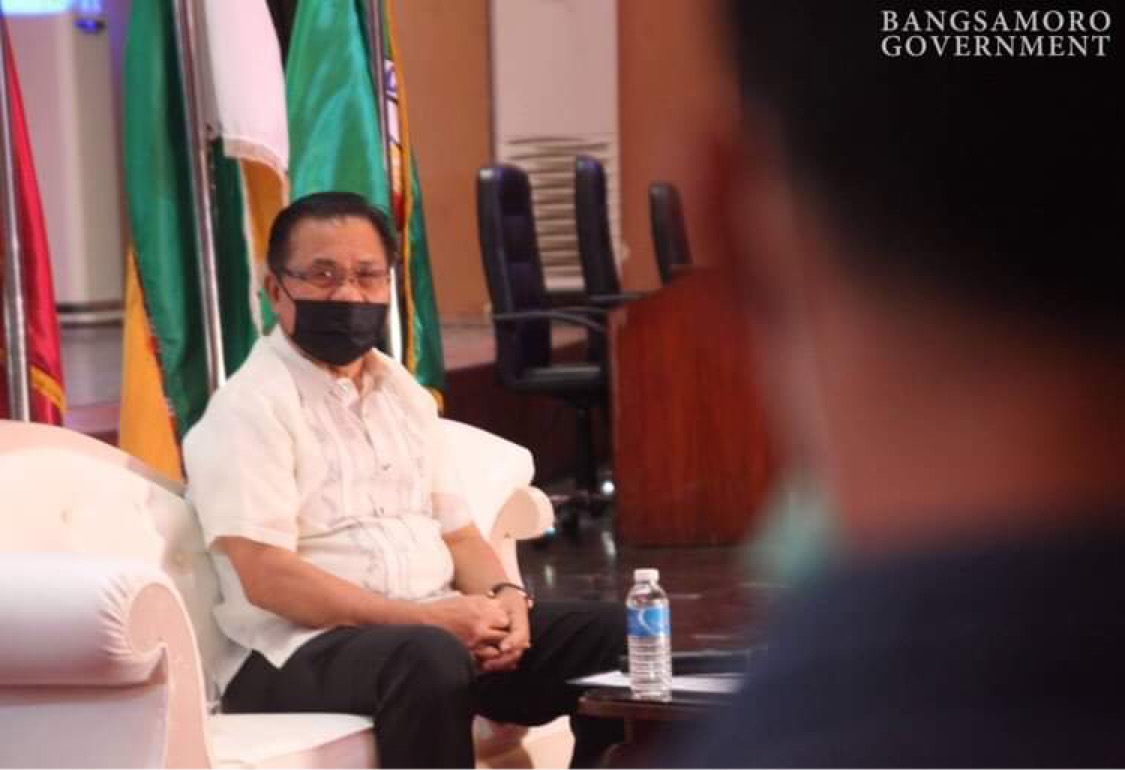COTABATO CITY—Bangsamoro Chief Minister Ahod “Al-Haj Murad” Ebrahim personally spoke with various stakeholders from sectors across the Bangsamoro region through the first edition of ‘Mushawarah: A Dialogue Towards an Inclusive Moral Governance’ on Friday.
The Bangsamoro Government recognizes the vitality of heeding the voices and interests of the people, through the Civil Society Organizations (CSOs), in the pursuit of long-lasting peace and sustainable development in the conflict-ridden Bangsamoro Autonomous Region in Muslim Mindanao (BARMM).
The BARMM’s Mushawarah was uniquely conceptualized, wherein the Chief Minister himself will be regulary talking with the people from the grassroots level, in order to keep the Bangsamoro Government’s firm grip of the situation on the ground.
Mushawarah is an Arabic term that translates to ‘consultation’. It’s a practice originating from the early days of Islam which aims to arrive in a consensus on matters of spiritual and societal importance. This custom served as the inspiration in the conduct of Friday’s inclusive dialogue.
On its first leg, Bangsamoro Government along with the 26 CSOs convened at Shariff Kabunsuan Cultural Complex, Bangsamoro Government Center in the city to discuss key societal challenges that need to be prioritized by the interim government amid a transition period.
The CSOs were comprised of 44 individuals and represented several sectors such as women, youth, religious/faith-based leaders, Internally Displaced Persons, Non-Moro indigenous Peoples, and Christian settlers.
They travelled from the provinces of Maguindanao, Lanao del Sur, Sulu island, 63 barangays in North Cotabato, and other areas outside the territorial jurisdiction of the Bangsamoro region.
Among the pressing issues and concerns addressed during the consultation were matters involving the institutional services on education, health and nutrition, social protection on vulnerable sectors, the peace process and its political relation, and socio-economic programs, among others.
The key priority concerns consolidated in the discourse were also provided by corresponding mechanisms needed for its institutionalization and full implementation.
Chief Minister Ebrahim answered the main concerns of each sector and ensured them the Government of the Day’s commitment in addressing the issues.
In the provincial island of Sulu, it was raised that at least seven (7) municipalities are experiencing insufficient supply of drinking water that drastically affected the lives of the communities.
“Included in the 2021 Proposed Budget is the procurement of Portable Disalination Machine for these municipalities, they can convert seawater into potable drinking water and clean water used for their daily consumption,” Ebrahim said.
In Lanao del Sur, one of the many issues brought up by the sectors is the IDPs’ perspective on the rehabilitation of beleaguered Marawi. While others demand the reconstructions of infrastructures, some displaced communities just really wanted to return back home.
“We have talked to the President to include BARMM as part of the Task Force Bangon Marawi. But since the plan was already laid out, all we can commit is to allocate programs and projects without complicating the mandate assigned to them,” he said.
Ebrahim also shared that the Bangsamoro Government allocated Php500-Million budget intended for the rehabilitation program of Marawi and recently added Php575-Million fund for housing project and construction of water supply from the Lake Lanao.
Meanwhile, the possible creation of municipalities in the 63 towns of North Cotabato awaits when the Philippine Statistics Authority (PSA) finally releases the 2020 Census of Population and Housing. Ebrahim told this is ideal since the towns are currently administered only through the Development Coordinating Office.
In the Province of Maguindanao, Ebrahim told the groups that BARMM inked Memoranda of Understanding with five (5) town mayors and will construct executive halls, public markets, and legislative buildings to enhance the delivery of governance.
Further, Ebrahim conveyed that the Ministry of Indigenous Peoples’ Affairs (MIPA) is working closely with different indigenous cultural communities in crafting the Indigenous Peoples Code that would address issues on ancestral domains and territorial disputes. (Bangsamoro Information Office)
![]()









2 Comments